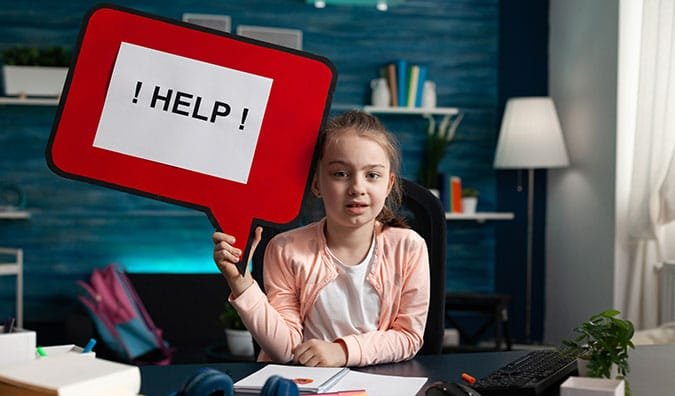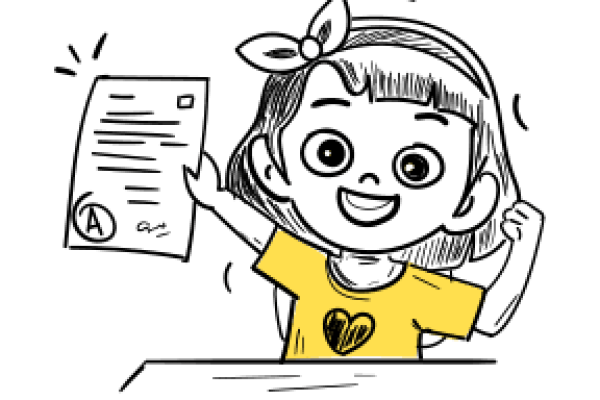It is the dream of every parent for their children to acquire new skills. Parents are more concerned than ever about ensuring that their child does not fall behind, whether in academics or in non-academic areas.
However, in some cases, there is a mismatch between the parent’s expectations and the child’s performance. If children,
- are slower to develop their abilities compared to their peers,
- have difficulties to read and write,
- have a shorter attention span or very hyperactive or impulsive,
- in general, are struggling academically
If so, they may have a learning difficulty or sometimes a disability.
Simply put, learning disabilities affect how an individual receives and processes information. However, if a child is suffering from a learning disability, it does not imply that they cannot learn. They can. They just require more assistance, constant guidance and care.

Dyslexia, dysgraphia, dyscalculia, etc. are few common learning problems. Genetic or neurological factors cause these problems and can affect various mental and cognitive functions of an individual.
Before jumping to the conclusion, it is important to know that signs and symptoms alone are not enough to determine whether an individual has a learning disability. Proper diagnosis by an expert is a must.
Some of the symptoms that indicate learning problems in children are as follows:
Difficulty in Reading and Writing
This is the most common learning difficulty faced by children. The common types of learning difficulties are as follows,
- Dyslexia – Difficulty in understanding letter-sound connection, eventually leading to reading difficulty.
- Dysgraphia – Difficulty in writing. Frequent complain of pain in arms and hand while writing, etc.
- Children who suffer from dyslexia and dysgraphia sometimes reverse complete words (reading/writing “dot” as “tod”) and sometimes reverse letters (reading/writing “have” as “haev”).
- Seeing inverted letters or not being able to differentiate between mirror letters or symbols (like ‘b’ and ’d’), trying to guess the written word rather than understand it, reading and writing extremely slowly, not being able to find letters, etc are also common.
Difficulty in learning Numbers and Maths
Children often find it hard to understand number sense, arithmetic concepts and struggle to solve them. But if the problem persists, along with symptoms like inability to remember the sequence of numbers, poor retention of mathematical concepts and problems with skills related to math (difficulty in keeping track of time and understanding directions), then the child could be suffering from Dyscalculia.
Poor Memory and Retention Power
Forgetfulness is common in kids. Poor memory and forgetfulness, are not learning disorders. Rather, they are red flags for a variety of other disorders. Low working memory, unable to retain information for longer period of time, unable to recall what studied and other such problems can effect child’s school performance.
Attention related problems
Important signs of attention related problems, which needs to be addressed are poor attention span, getting distracted very easily and cannot focus for long in any activity. Wrong diet and lack of sleep may also lead to a shortened attention span in children.
What to Do?
If you are concerned that your child might have some sort of learning disability, here’s what you can do:
First things first – Stay calm. Nothing to feared about Learning problems. Remember, the child will handle the problem only if the parents deal with it properly. Acknowledge and accept it.
If your child exhibits any of the above mentioned symptoms, then it is not necessary that they have learning problem. There’s a good chance that the symptom is just a phase and that it will pass as your child grows. However, getting diagnosed is very important.
by a professional after discussing it with the teachers in school.
Do not believe the myth.
- “Learning disorders are curable”
- “It implies that the child is incompetent or has a low IQ.”
- “They’ll never succeed in life.”
- “He’s just lazy. And he’s probably faking the symptoms. “
- “I’m sure that’s ADHD.
This need not be true. Having a learning disorder does not mean the child is less intelligent. It might not be about low IQ. It is just that their brains are wired differently. They perceive things a bit differently.
Individuals suffering from learning and motor disorders can and do succeed. Famous personalities like Keanu Reeves, Beethoven, Jennifer Aniston, Albert Einstein, all of them suffered from learning disorders. It is impossible to imagine the world without them and their contributions.
Every child is special. It’s just a matter of time, perspective, and opportunity before they all reach their potential. Just be attentive to your child and be there to support them emotionally and mentally, and they will grow up into something that the world will be proud of.

